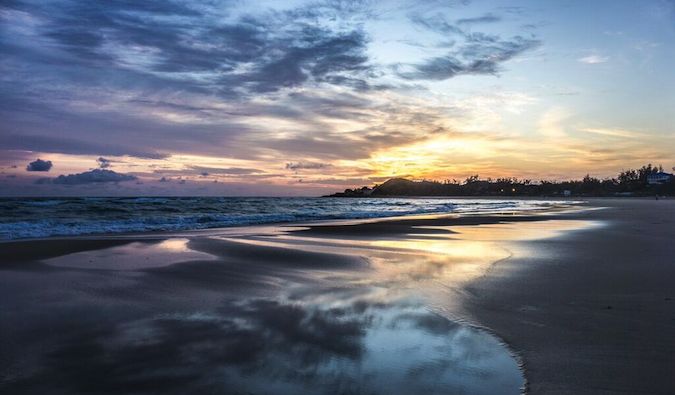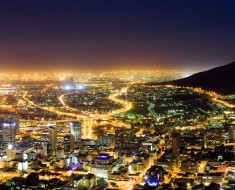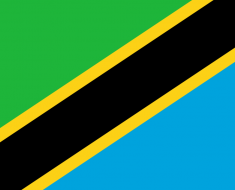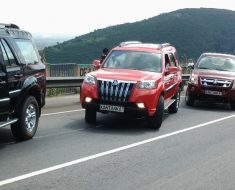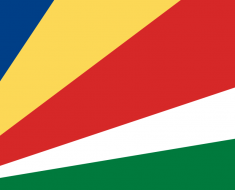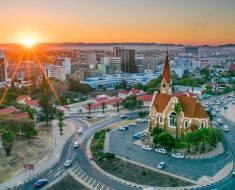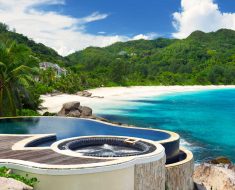On the second some Wednesday of the month, Kristin Addis from Be My Travel Muse writes a guest column featuring tips and advice on solo female travel. It’s an important topic I can’t adequately cover, so I brought in an expert to share her advice for other solo female travelers! Here she is with another awesome article!
Mozambique isn’t a country on the typical backpacker trail. It’s rumored to be difficult and dangerous, but much like the rest of Africa, it’s misunderstood and prone to myth.
Before I went to Africa, and Mozambique in particular, people told me to “be careful.”
Yet I came to find that once I got to Mozambique, most of what I heard was wrong. Yes, it was somewhat difficult to travel through, with long bus journeys and overfilled minivans. And yes, I had to keep my wits about me because that’s always important when you travel solo, but for the most part the beaches were beautiful, the piri piri seafood was delicious, and the fact that it’s not a tourist hotspot made it peaceful, too.
It’s also affordable. Mozambique is the only country I’ve been to where I didn’t have to pay double to have a bungalow to myself as a solo traveler. It’s one of few places where I could buy a coconut for around ten cents, a mango for five cents, and a whole fish big enough to feed three people for around $6 USD.
There are also a bunch of fun and interesting things to do in Mozambique that you can’t do anywhere else, especially in a destination as cheap and uncrowded as Tofo.
1. Go scuba diving
Tofo is home to many famous scuba diving spots known for sightings of big sea creatures. Whales, dolphins, whale sharks, and manta rays are all known to frequent the warm, nutrient-rich waters of Mozambique.
You’re also unlikely to have to battle with other divers for the best sites. There are only a couple of diving outfits in Tofo, such as Tofo Scuba, which charges around $30 USD per tank. This means that if you spot a whale shark under the water, there won’t be hundreds of other tourists jumping in the water with you like in the Maldives and the Philippines.
2. Find hidden enclaves
Tofo is the only beach destination I have ever visited where tourism actually appeared to be on the decline. Usually, I visit a beach and then find it’s completely ruined when I return a few years later, overrun with tourists. Mozambique is different for a few reasons, namely the difficulty of traveling there and the lack of general information available about it.
That means that the people who you do meet there are usually really interesting travelers. They might be Peace Corps volunteers on their summer break, people from Australia or the States who work in agriculture, South Africans, or other travelers who were already in Africa and got there by word of mouth. The beaches are still beautiful, the sand is still clean, and the locals aren’t jaded yet. To me, that’s the perfect kind of place.
3. Make local friends
Mozambicans are friendly. Those who can speak English are almost always interested in hanging out with foreigners, and sometimes you can enjoy a heartwarming experience as a result.
Pictured above are Orlando and Nate. Nate is an American guy who decided to invite Orlando on his trip through Mozambique after learning that Orlando had never left his village. The relationship between the two was mutually beneficial, as Nate got to have a more local travel experience and Orlando finally got to see his own country.
When I heard about it, this kind of thing didn’t surprise me, because locals were showing me around Mozambique all the time, as well as taking me to late-night dance parties and art galleries.
4. Take a boat trip to the offshore islands
Boat trips are a fun and cheap way to fill an afternoon in Mozambique. In Tofo, you can usually organize one with a local or through your hostel with a group of friends for around $30 USD per person. It’s as easy as just asking the question: chances are good that someone will know someone who has a boat and can take you. It’s the way Tofo works.
The boats are simple, with sideways sails and rudders made out of old wood. It won’t be fancy, but it will be beautiful. Bring your own beer, sit back, and enjoy.
5. Ride a quad bike through the sand dunes
When you rent a quad bike in Tofo, you can take it through some of the small villages (and by small, I mean 5-10 grass huts) in the sand dunes behind the beach. Kids run out and either wave or decide to be little rascals and try to grab onto the back of the quad bike as you ride by.
You can find all kinds of little enclaves and beaches that aren’t accessible directly from the beach in Tofo itself, or you can finally give yourself a ride to the ATM, which is otherwise a 30-minute walk away.
6. Relax all darn day
Truth be told, most days in Tofo I just relaxed all darn day in a hammock, in a pool, in the ocean, or on the beach. It isn’t expensive, with a beer running just under $2 USD, a plate of seafood anywhere from $6 USD for barracuda or prawns to $12 USD for a whole lobster, and a private bungalow on the beach around $15 USD.
It’s the perfect place to just lounge for weeks and listen to music with friends in between dips in the ocean and sunset walks — without feeling guilty for spending a fortune.
7. Hitch a boleia
A common way of getting around Mozambique is to hitchhike, called a boleia in Portuguese. Tofo isn’t big, but if you want to get to the ATM, which is a bit of a walk, a ride is much quicker and more fun, too!
I took a few boleias that were somehow just as relaxing as laying on the beach — I sat in the back of a pickup truck and watched as we passed little villages with grass huts and hundreds of trees heavy with mango fruit. Some boleias are even boats.
They’re easy to get. You just have to make sure you’re at a logical intersection in order to get a ride. Ask around before you give it a try, so as to get some intel from the locals.
A note on boleias: I can’t recommend this as a solo traveler, especially if you don’t speak any Portuguese, and in general I can’t say this is the safest method of traveling, but, as mentioned, it’s common in “Moz” and the way that I, personally, usually got around.
I’m glad that despite the mostly negative information I encountered about Mozambique, I listened to the few people who told me that it was a wonderful place worth exploring. I’m glad that I saw it for myself, and I’m excited to share it with you now.
Just because a destination isn’t as well known doesn’t mean it can’t be wonderful. If you have a chance to go to Mozambique, take it, and come back and let me know how it treated you!
